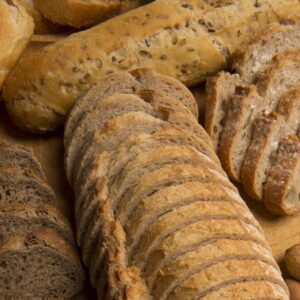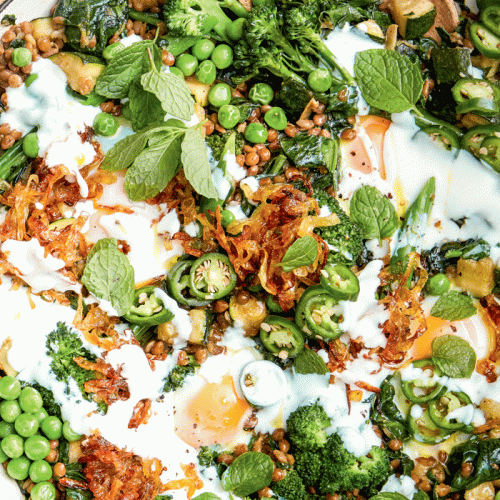
Health psychologist Iris Fontanilla shines a light on mistakes mothers make – sometimes without realising – which can create potential health minefields for their daughters.
‘Battlefield’ is the place that comes to mind when we imagine where mothers and daughters end up while navigating and negotiating their way to develop healthy eating patterns and positive body images.
Since the late 1960s, society has associated thinness with beauty. Research shows that girls as young as five know what dieting is – something they learn from observing their own mothers’ dieting efforts. Many of us are battle-scarred from the skirmish we have had with food, weight, and body image. So how do we ensure our daughters avoid these battles?
Minefield 1: Negative self-talk (spoken and unspoken)
For every horrified partner who hears that question ‘does my bum look big in this?’, there will be countless times when we have asked ourselves that same question. We complain, despair, and become upset by increasing waistlines, unsatisfactory body shapes and recurring weight gain.
If changing-room walls could talk, they would be gossiping about our relentless negative backchat, put-downs and self-criticism.
This negative self-talk harms us and whether we know it or not, this chatter is picked up by impressionable young minds around us. Children reflect back and absorb negative and critical statements we make about our eating habits and body image.
Social learning theory tells us we are more likely to imitate a person we like and most resemble. Studies have shown children and adolescents might therefore copy their same-sex parent (for daughters, their mothers) and their dieting behaviour. Mothers are particularly influential since they are often also in charge of food preparation and meals.
Plan of attack
- Start with yourself: learn to keep negative self-talk in check. Replace it with realistic self-talk to get a balanced or more positive viewpoint.
- Instead of pointing out things you don’t like about your body, identify aspects of yourself you do like such as your eyes and hair, for example. Better yet, focus on attributes and strengths that you have rather than your physical characteristics.
- If you do feel the urge to vent to girlfriends, make sure you limit the negative self-talk and make sure your daughter is not in earshot.
Minefield 2: Food restriction and dieting
The eating behaviour children and adolescents adopt when they are young can stick with them when they become adults. Research suggests a mother’s comments about weight are markedly associated with her child’s concerns about gaining weight and the frequency of trying to lose weight.
Mothers are in an enviable position to ensure their daughters grow up with good eating habits, self-esteem and positive body image. A large-scale study of 5331 adolescent girls found that girls’ desire to be thin or lose weight was based in part on their perception of what their mothers wanted for them. It comes as no surprise that girls in this study were more likely to engage in dieting behaviours if their mothers had done so.
Plan of attack
- Focus on healthy lifestyle habits such as healthy eating and regular physical activity as part of having a good quality of life and not strategies for weight-loss per se.
- Don’t talk about ‘dieting’ – instead strike a balance by discussing the positive aspects of maintaining a healthy weight range to minimise health risks and disease in the future. Do not place too much emphasis on body weight.
- Model healthy eating practices for your daughter. Make sure you eat a healthy breakfast. Do not skip meals, fast, or try ‘crash’ or fad diets.
- Prioritise and make time to have a regular meal around the table rather than on the couch with the TV on. View meal times as ‘special’, quality time. Use these moments of togetherness to catch up and stay informed about your daughter and her influential peers.
Minefield 3: The power struggle and the critical parent
Parenting is full of challenges. Some might say a roller-coaster ride, full of highs and lows with no end in sight. You may have found yourself caught up in a power struggle over food and weight issues with your daughter which in turn has turned you into the dreaded critical parent.
Previous research indicates that mothers who encourage their daughters to lose weight and criticise their figures have been linked to their daughters’ level of restrained eating.
Another study established that girls with a high body mass index (BMI) who were told by their mother that they were ‘too fat’ were more likely to be constant dieters. Indeed, these critical statements can strongly influence unhealthy lifestyle behaviours such as dietary restraint.
Plan of attack
- Go with the flow’ and ‘let go’ are useful mantras to use when you feel caught up in a power struggle, especially during adolescence. Aim to serve meals and snacks in a relaxed atmosphere.
- Do provide healthy food options and snacks – do not ban foods and drinks in the form of lollies, sodas, cakes and other sweets.
- Encourage your daughter to plan her next meal by going grocery shopping together or better yet, involve her in the food preparation. This will signify to your daughter that her food preferences and opinions matter. This in turn will help her to feel empowered and in control. You will bypass power struggles in no time by encouraging open feedback and dialogue about her healthy food choices.
- While comments about weight or your daughter’s figure may be well intentioned at the time, stop! Do not, I repeat, do not comment about her size, as this will only make it worse. This is the time when your daughter is trying to figure out her identity and her own place in the world. It is important to pick your battles.
- Research has found that teens tend to make healthier food choices (eg. fruits and vegetables over sweets) when parents have established these foods as part of their ‘household eating rules.’ Let your daughter regulate her food intake. Most children will eat when they are hungry and stop when they are full.
- Remember, losing control may cause rebellion, risk-taking behaviours, feelings of guilt, unhappiness, resentment and anger in most of us, so try constructive feedback instead.
Minefield 4: Food as an emotional crutch
Food – and alcohol – often feature when we feel like commiserating or celebrating. We often link certain emotions and events with food: cake with birthdays, lollies with doctor’s visits and ice cream for sore throats or broken hearts.
Many of us have used emotional eating in the past to cope and deal with life’s stresses. Food for some of us is the ultimate – and at times the only – reward to keep depression at bay.
In my clinical practice, clients use comfort eating to alleviate emotional distress as food and/or drink provides immediate comfort and gratification. Unfortunately, by eating rather than feeling, we fail to fully deal with the emotions life throws at us. Eating leaves its mark on our waistlines without letting us deal with the underlying cause of the emotion. When that underlying cause rears its head again, that third biscuit won’t help us deal with it.
Plan of attack
- Teach your daughter how to engage in problem solving so she has alternative ways of coping. Problem solving involves first identifying the problem. Sit with your daughter to brainstorm as many ideas/solutions as possible (do not censor any ideas at this point), then with each solution discuss the pros and cons of each idea. Once you have both established the potential solution which has the most benefits, it is time to take action and implement the solution. The final step with problem solving is to review the results or outcomes.
- You can both engage in fun relaxation activities such as breathing techniques, yoga, meditation and other physical activities to dampen the effects of the ‘fight or flight’ response we all experience when we feel distressed. These and other stress busters can certainly replace or lessen emotional eating.
- As issues with food and eating behaviours may be one of a constellation of symptoms which people experience with a mental health condition(s), if you suspect you or someone you love is experiencing symptoms of depression, anxiety, or an eating disorder, consult with your GP, local district health board, or psychologist for assistance.
Minefield 5: Skinny = beauty and success
Some things never change. Society and cultural practices continue to put undue pressure on women to be thin. We are bombarded by messages across all forms of media about the importance of being skinny. Adolescent girls are especially vulnerable to these unrealistic expectations as the direct (and indirect) message being pushed is that being slim can bring success, popularity, love and happiness. These ideals are unrealistic and can contribute to the development of eating disorders.
Plan of attack
- Encourage your daughter to express her feelings and concerns directly. Be an active listener – don’t interrupt, even if you feel the urge to do so.
- Talk openly with your daughter about different body types, body shapes, and the role of genetics.
- Provide reassurance and compliment your daughter’s strengths and skills rather than her figure and physical attributes. Build up her self-esteem by supporting her hobbies and interests. These are helpful distractions that can ease the pressure that success is only measured by beauty rather than talent and intelligence. For instance, get your daughter to identify sporting or professional role models whom are known for their talents, strengths and skills as opposed to their dress size.
- Finally, role model healthy lifestyle habits such as healthy eating and healthy activities. Demonstrate a realistic self-image of yourself and others.
Useful resources for further information
Books
You’d Be So Pretty If …: Teaching Our Daughters to Love Their Bodies–Even When We Don’t Love Our Own. Chadwick D. 2009.
Skills-based Learning for Caring for a Loved One with an Eating Disorder. Treasure J, Smith G, and Crane A. 2007.
Raising Teens Today: Dealing with Sex, Drugs & Homework. Lambie I & Simmonds L. 2010.
Websites
www.b-eat.co.uk The UK Eating Disorders Association
www.ed.org.nz The Eating Disorders Association of New Zealand (EDANZ)
www.kidsline.co.nz Kidsline or phone 0800 KIDSLINE (0800 543 754)
www.relationships.org.nz Relationship Services
www.thelowdown.co.nz Understand and deal with youth depression
www.whatsup.co.nz 0800WHATS’UP, free, confidential telephone counselling service for anyone aged between five and 18 years
www.youthline.co.nz Provides youth development and support services
www.healthyfood.com










